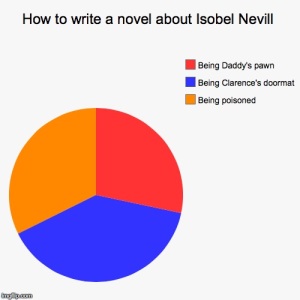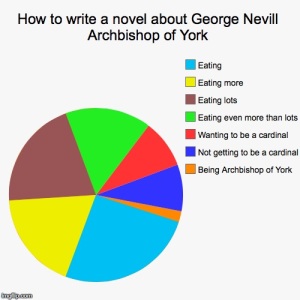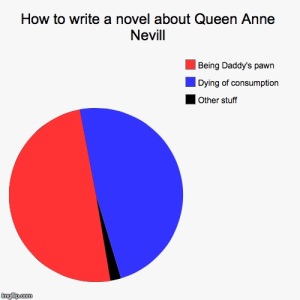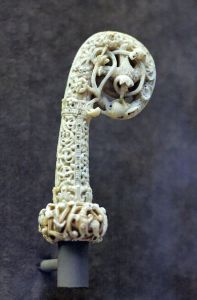Breakfast and a Well Fitting Pair of Levis
A godawful noise woke Dakota. It sounded like a peacock being devoured by a threshing machine and it was far closer to her ear than was good for her brain. On a small table next to the bed was a black box and from it manifested the ghostly form of a series of numbers: 644. Not quite the Neighbour of the Beast, but in the same street. She knew what it was and this brought a sinking feeling to her belly that came close to overwhelming the peacock-shrieking in her ears. She struck the clock with her fist, which did nothing to quell its torment. With a click of her tongue, she swung her legs around, took hold of the clock and gave a sharp tug, hurling it across the room. This had the effect of disconnecting it from its tether and – bliss! – silencing it.
Dakota hated alarm clocks. Even more than that, she hated the implication of alarm clocks. They put her squarely in the twentieth, possibly the twenty-first, century. She hated them both. Her trips here had been brief, the last one a mercy mission to buy some blue gatorade in a desperate attempt to cheer up a depressed archbishop. She stood up and padded over to the window, leaving the gently snoring Bastard of Fauconberg to gently snore.
She pulled back the curtain and looked down at the glare of the city, the stream of vehicles on the dirty road, busy even at… She frowned. 644 the clock had said. Calling to mind the calm and sensible round face of a proper clock, she translated the numbers into actual time. Nearly quarter to seven. She’d have to think about breakfast soon, waking Thomas, seeing if the Countess had thought to leave them suitable clothes, venturing out and down the stairs.
There’d be more black boxes to contend with. The twentieth, or possibly twenty first, century was awash with them. They shrieked and clacked and pinged with alarming regularity. And the people – they moved so fast and were so loud it hurt Dakota’s frontal lobes just to think about them. Acres of exposed skin, painted faces, slicked back hair… They were always trying to sell each other things. She shuddered to think of Thomas let loose in this world. He was going to love it!
Still, it would give her the opportunity to introduce him to a good anti-perspirant.
Over breakfast – eggs, bacon, tomato, sausage – she tried to explain. Thomas looked at her through sleepy eyes, shovelling food into his mouth, trying not to crush the dainty teacup in his meaty hand. He was dressed in a pair of sturdy trousers that did quite amazing things to his already amazing arse, and a plain white shirt. Dakota had found the wicker basket in the bathroom, packed with all manner of clothes, a substantial wad of money buried among them. No note, she thought bitterly. A note might have been useful. Being summonsed into the Countess’s presence, having the mission explained and being actually asked if she’d like to undertake it, that would have been most useful of all.
She looked at Thomas, now leaning back in his chair, the stubby end of a sausage in his fingers. This he popped into his mouth. Dakota picked up her napkin and handed it to him across the table, watching as he wiped his greasy hands and face.
“We’re somewhere in the twentieth century,” she said, “possibly the twenty first. You have to listen to me, Tom! This is important. People are going to try and feed you potatoes. They brought them from the Americkys and came up with all kinds of ways to cook them, but mostly you’ll be offered them boil and mashed, or fried. Choose the fried. And then there’s chocolate. It’s brown, it tastes really good but it’s horribly dangerous! One bite and you fall in love with the very next person you see. That’s why people close their eyes when they eat it. And they’ve change the rules of chess…”
“You want to give me some clue what you’re talking about, Dakota?” Thomas said.
She sighed. “Try and take everything in your stride. And, well… just try not to panic.”
Thomas gave her a most reproving look. He was right, of course. He’d never panicked in his life and there was nothing in the space/time continuum that couldn’t be enclosed within his confident stride.
“What was that about chess?” he said.
“I don’t know! It’s just one of the things people say to visitors from the 15th century. I think I must have read it somewhere.”
At the next table, a young woman was holding forth on what seemed to be her favourite subject.
“He was such a good king!” she said. “He cared about the common people. He invented bail and trial by jury.”
“No he didn’t, Becky.” The speaker was a young man sitting opposite the earnest woman, a look of amused patience on his face. “You’ve known about him for – what? – three weeks. And you got all this from some dubious facebook group…”
“It’s all true!” Beck leaned forward over the table, her hands clasped on its sticky surface. “Everything else is Tudor Propaganda!”
Dakota knew who she was talking about. There was a conversation like this in every hostelry in every time stream in history. Well, at least since the early 1500s. Any second now, Becky was going to say, “And he didn’t murder the…”
“And he didn’t murder the Princes!” Becky said. “That’s just lies! They were smuggled to Burgundy for their own safety. On his orders!”
“Well,” the young man said. “That idea opens a whole new kettle of worms, doesn’t it?”
Dakota could have told them exactly what happened to the Princes. Smuggled, yes. For their own safety, certainly. On his orders, most definitely not. It was their father, in the weeks before his sudden and unfortunate death, who sent for Dakota. To this day, she still didn’t know how he knew but his suspicions weighed heavily on him.
“I don’t want to think it’s true,” he said. “But I know you have… ways and means. If you could just find out, you know, see how things are once I’m gone. And, well, just do what you can, really. I can’t ask more than that.” He gave her a wan, tired smile. “I just can’t seem to catch a break when it comes to brothers. Oh, I have no proof, of course. Or no proof that would stand up in a court of law, even one gently directed by a gracious monarch. And if it’s not true, if it isn’t going to have happened… you might find a way to let me know, you know…”
Then he dismissed her, calling for his secretary to bring his will so he could scratch out the name Richard duke of Gloucester in the codicil and write Anthony Wydeville in its place. Now, of course, knowing all she knew and suspecting more, Dakota could have eased at least some of his concerns. King Richard had viewed the Princes’ empty quarters with a mixture of bafflement and relief. Ask no questions, Sire, Dakota whispered to him. And don’t send to Italy for entertainers.
Dakota hoped she’d have to wait years before carrying out the King’s orders. His sudden and unfortunate death, just weeks later, sent her into a deep depression and sparked into life a profound sense of foreboding in the pit of her belly.
The day the likelihoodometer represented the chances of the Princes surviving till their next birthdays as a series of zeroes, with the ghost of a .1 somewhere beyond the capacity of the gauge to measure, she let herself into the coach house where the Countess of Richmond kept her time machine. A series of short journeys forward helped her triangulate the time between the end of speculation about young Ned’s coronation and the start of the rumours of his death. At what she judged to be more or less the optimum moment, she slipped into the Tower of London and, after a series of events that would take their own Christmas Special to be properly told, brought out two shivering young boys, bundled them into the time machine and set off for 16th century Venice. (“We want to be there at the very beginning!” young Ned said, eager eyes shining. “If I can’t be King, then this is the thing I most want to be!”)
“Dakota?”
She blinked her eyes, resisted the urge to shake her head, and turned her attention back to Thomas and the remains of her breakfast.
“King Richard has a society dedicated to researching his life,” she said.
“You’re kidding me! The little shit who lopped my head off?”
“You’re head’s not off, Tom. You’re a living, breathing… large as life and twice as ugly. And a little bit of gratitude wouldn’t go astray!”
“I’m only alive in one sense. In other sense, I’m already dead. In a third sense, my head’s still on that block, the axe…” He shuddered. “And it’ll be that way till you decide I haven’t shown you enough gratitude. Then it’ll all be over in the blink of an eye. Just out of interest, how close was that blade to the back of my neck before you worked out how to rescue me?”
“It doesn’t matter, Tom. You’re safe now. Which you would have been all along if you hadn’t taken it into your head to invade London with a bunch of louts from Kent. Why is it always Kent? Every would be rebel’s first thought… I’d best get myself to Kent and pick up a few hundred louts. And when has it ever worked?”
“Tradition.” Thomas smiled. “You can’t just fly in the face of tradition.”
“It must have something to do with why we’re here.”
“Why are we here?”
“You didn’t pick up that I have no idea? And even less idea why she made sure you were with me.”
She swept her gaze around the room and saw nothing particularly remarkable. Families – small ones, tiny ones, no more than two or three children – gathered around tables eating breakfast. Here and there, a well dressed couple. Several tables for one, men in suits, women in suits, newspapers and books propped up against salt and pepper pots, plastic devices buzzing and chiming.
“I’m always with you,” Thomas said. “Well, as much as possible. When you aren’t pining for the bloody Prince of Wales.”
“I don’t pine, Thomas. I make rather a point of it.” She finished the last mouthful of tea and stood up. “And now I suppose we’d better find out why we’re here.”
There was a letter waiting for her at reception, handed to her by a smiling woman. Dakota moved away from the desk and broke the seal. Inside, written in a fine secretarial hand was an address and a very brief message. Bye magicke marques. Underneath was an address. Dakota folded the note and shoved it into a pocket. The Countess was being more than usually cryptic. Ahead of her, just about to step through the door and out into the blare and stink of the twentieth, or possibly twenty-first, century, the Bastard of Fauconberg was looking exceptionally fine in his Levis.









